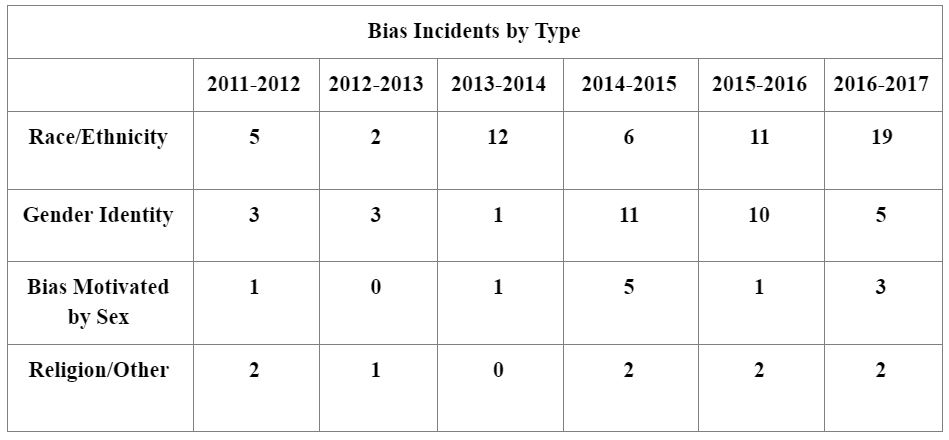College reports 20% increase in bias incidents, but sees no spike after election

Gettysburg College President Janet Morgan Riggs addresses student protesters who slept out in front of Penn Hall on November 17, 2016
Photo courtesy of Annika Jensen
By Benjamin Pontz, News Editor
In an email to the College Digest, Ron Wiafe, Director of Student Rights & Responsibilities, reported that 29 bias incidents occurred on the Gettysburg College campus during the 2016-17 academic year, an increase of more than 20% from the 2015-16 total of 24.
The college defines bias conduct as: “Threatening, degrading, abusive, or hostile acts including conduct, expression, or speech which are motivated, in whole or in part, based on an individual’s or group’s actual or perceived race, ethnicity, color, religion, national origin, disability, veteran status, marital/familial status, possession of a General Education Development Certificate (GED) as compared to a high school diploma, sexual orientation, gender identity, gender expression, sex, age, or genetic information.”
Notably, the largest number increase in incidents from 2015-16 to 2016-17 came in incidents pertaining to race and ethnicity, which increased from 11 to 19. Concurrently, incidents pertaining to gender identity were cut in half, going from 10 to 5.
While a vocal campus population suggested that a more divisive atmosphere existed on campus this year, perhaps in relationship to the results of the 2016 U.S. presidential election, such a relationship was not reflected in reports of bias incidents; Wiafe called the difference in number of incidents before the election versus after the election “not statistically significant,” noting that 14 of the 29 reported incidents occurred prior to the election while the other 15 happened after.
On November 17, nine days after the election, dozens of students camped out in front of Penn Hall overnight as they protested what they saw as an atmosphere of hate that pervaded campus. Cait Goodlett ’17, who was one of the protesters, told The Gettysburgian at the time that the protest occurred in response to “increased hate speech all semester.”
In a letter on behalf of the protesters, Joey Recupero ’17 promised to “strive and push forward” and “to unite under an understanding that hate is a poison that we will not swallow.”
The 2016-17 academic year’s 29 reported bias incidents marks a doubling in reports of such incidents since 2013-14.
Wiafe suggests that it is difficult to determine whether the spike reflects an increase in willingness for students to report or an increase in incidents occurring.
“It is hard to determine what specific factors caused the increase in incidents,” he said. “I think our community is continuously learning how to respect and appreciate the differences in others. As a result of this inclusive process intentional and unintentional mistakes occur.”
The campus has established a Bias Awareness and Resource Committee (BARC), which is working to address issues pertaining to biased conduct as well as educate the campus on the issue.
That committee has student representatives from the Black Student Union, Latin American Student Association, Student Senate, Outer Space (which supports queer-identified students) and the Interfraternity Council as well as a Chinese international student representative, members of the faculty, and college administrators.


